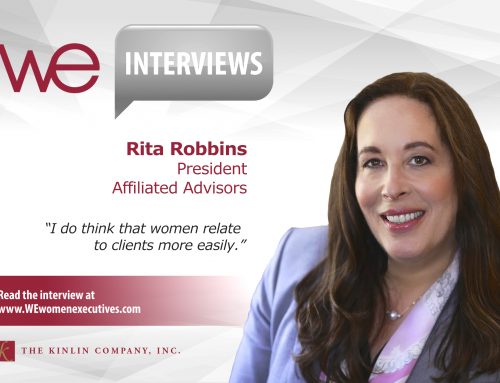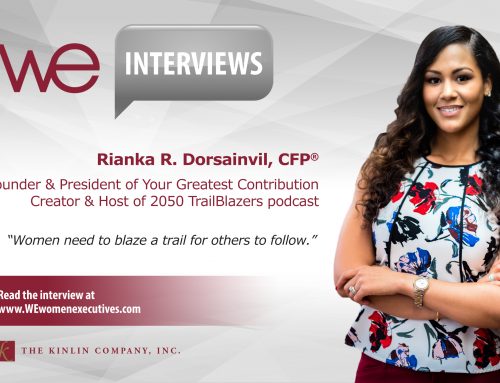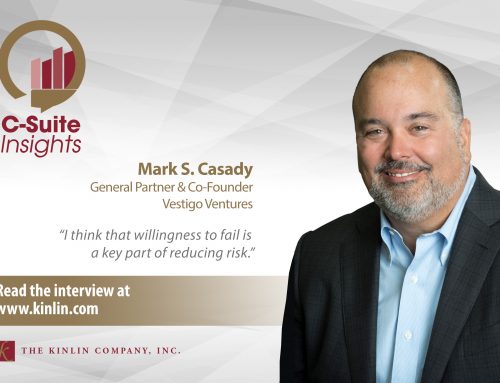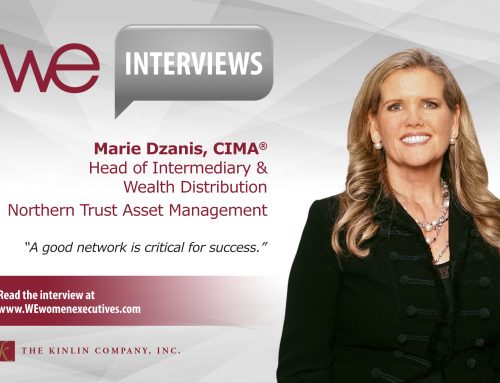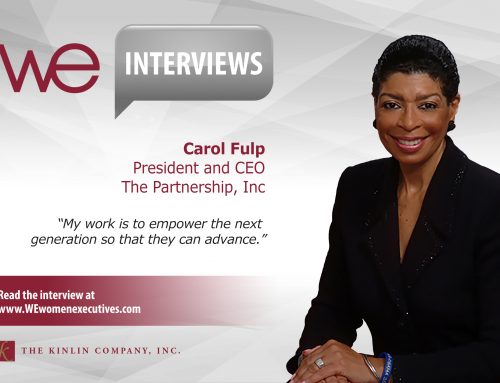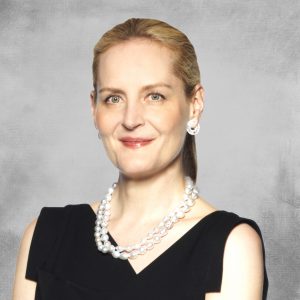 Hannah Grove
Hannah Grove
Chief Marketing Officer
State Street Corporation
As Chief Marketing Officer for State Street Corporation, Hannah Grove oversees a global marketing team of 80 people spread across North America, Europe and the Asia-Pacific region. She and her team are charged with strengthening State Street’s reputation, raising brand awareness and engaging stakeholders globally, with the ultimate goal of helping to support revenue and business objectives of the company. Hannah, who has been with State Street for nearly two decades, was recently elevated to the global financial firm’s Management Committee, its senior-most strategy and policy-making team.
I recently sat down with Hannah to talk about the lessons she’s learned over the course of her career, the importance of advocating for diversity, and the advice she’d give to others seeking to advance in their careers.
Start with your passion
I was eager to find out what Hannah viewed as important factors behind her success. What stands out as the most important lessons gleaned from your career, I inquired.
“There are a few things. Number one, I’ve learned to follow my passion. If there’s been a common denominator in my career, it’s that I have always doubled down in the area that I’m most passionate about: communications. Starting with a passion is very important.
“The second piece that I feel very strongly about is believing in myself – and stepping forward with confidence. In terms of career, we women are often our own worst enemies. We think we can’t do things or that we can’t step up. I think it’s important not to listen to that skeptical voice in your head and instead project confidence about what you can take on. You can always up your game to meet a particular bar. That attitude — believing that I can, even when people tell me I can’t – has been a very important force in my career. There will always be people in life telling you that you can’t do something; if you join that chorus of disapproval, it’s going to hold you back.
“The third piece that I feel very strongly about is surrounding myself with people whom I respect and can count on to tell me the unvarnished truth. I call them my informal board of directors – people who I know will give me honest feedback and tell me how I can improve.”
Do you have people you’d consider formal mentors, I asked, or do you just have a group of people you call on for advice when you need it?
“It’s all of the above. I have absolutely had mentors as well as sponsors, people who have been actively vested in promoting my career. But there are people outside of the immediate work environment who will give me feedback as well. It’s very helpful to have a manager who will give you honest, constructive feedback…that’s really the best gift that a manager can give. If left to assess yourself, you can sometimes have a very one-dimensional and biased view of your own strengths and weaknesses.”
Pay it forward
Hannah’s comments offered a perfect segue into my next question about ‘Leading Women,’ the mentoring group she co-founded at State Street. Can you tell me a bit about what prompted you to form this organization and why it’s important to you, I asked.
“It’s tremendously important because, like many companies, State Street is operating a bit like a pyramid from a gender diversity point of view. At the base of the organization, we’re 53 percent women. As you climb up the pyramid, however, the ratio of women falls to 34 percent at the vice president level and 28 percent at the SVP level. At the Management Committee level, the percentage of women is growing, but it’s still challenging.
“Seven or eight years ago, when we reached a critical mass of female EVPs – a cohort of about 16 as it stands today — we all got together and said, ‘We’ve succeeded. We’ve blazed a trail. Now how do we make sure that we’ve got a pipeline of women behind us?’ I believe it’s incumbent upon us to play that role. Madeleine Albright said it well when she noted that there is a special place in hell for women who don’t help other women. I prefer to put that a bit more positively and say there’s an even better place in heaven for women who help.
“This group of “Leading Women” felt it was our job not only to mentor but also to sponsor, so we looked at the key talent in the SVP female cohort and each of us picked one or two women to mentor and help in advancing their careers. And happily, as we’ve been at this for several years, we’ve seen a number of women from the cohort who’ve become EVPs, so we have some success and momentum behind us.
“The other thing that we did was require those women SVPs – who are very senior in their own right – to pay it forward by mentoring or sponsoring VPs across the organization. It became a force multiplier and over time, we touched about 2,500 women across the organization. You said something very important in a previous C-Suite interview that was absolutely right – you have to engage men in this – you need to have allies who don’t necessarily have a vested self-interest.
“I’m also the executive sponsor for the LGBTQ group at State Street, and allies are vital to our progress in this area, in the same way that they are in addressing the gender issue. One of the things that has kept me at State Street is the consistent and tangible focus that our leadership has on gender diversity. It’s not a matter of ticking a box here; it’s taken extremely seriously. It’s measured and the tone is set from the top. We’re very lucky to have Jay Hooley as our CEO; he’s someone who walks the walk, and that’s been a huge enabler for us.”
Learn while doing
Hannah’s commitment to paying it forward in terms of supporting other women dovetailed nicely with my next question, which centered on her obvious commitment to giving back to her community in a broader sense, through service on the boards of All in Together, Women’s Lunch Place and State Street Pride. How do you manage to find the time, I queried, and what drives your involvement?
“All of the boards that I’ve served on have been non-profit and for me, they marry that point of passion I mentioned at the start of our conversation with a desire to give back. My passion has always been around women and homelessness, hence my interest in the Women’s Lunch Place.
“I didn’t grow up saying I wanted to be in financial services. If my math teachers knew where I was now, they would fall into a dead faint. I’ve always been more involved in the creative and artistic side of life, and I’ve found that involvement with non-profit boards has given me an amazing place to learn and acquire new skills in a lower-risk environment. For example, when I first joined the Women’s Lunch Place board, I asked to be on the Finance Committee, which allowed me to work hand-in-hand with the CFO. It was a tremendous learning experience.
“In answer to your question about the time commitment, I think women tend to have difficulty saying no in terms of the requests that are made of them in their careers. I think we’re good at saying no across a whole variety of things, but I think when it comes to career and being asked to step up to things, we tend to say yes, yes, yes, yes, yes. As a woman, you have to be very economical with your time and the commitments that you’re making to ensure that you can give one hundred percent, and that requires a lot of due diligence.
“Different boards have different requirements. They’ve got different meeting cadences and you really need to make sure the board will work for you. For example, the Women’s Lunch Place was a really great fit because they only met in the evenings. It was eight meetings a year, which I knew I could commit to, and I was prepared to give up that time for something that I was very passionate about; you just need to be careful that you don’t spread yourself too thin.”
Push yourself
In light of Hannah’s belief in the importance of mentors and sponsors, I was curious to know if there were particular individuals who had helped her on the way up the ladder. Are there particular individuals who have played a large role in your success, I inquired.
“During my time at State Street, I’ve had some great managers who viewed their role as one of connecting talent to opportunity, and they have enabled me tremendously. The company puts a lot of time and effort into training good managers, and I’ve benefited from that.
“I’ve also had people here who have really encouraged me and pushed me more than I might have pushed myself. Having said that, our former head of HR, Alison Quirk, used to say, ‘The person who’s in charge of your career is you.’ You can’t leave that role to anybody else. I’ve been very intentional about my career and have always tried to push myself and take on more, even if it was frightening or scary.
“My move to State Street is a perfect example. Marsh Carter was the CEO then and had set a goal to increase State Street’s non-US revenues. He was building marketing and PR capability in-house and offered me a position. Even though I was eight months pregnant with my daughter, I thought it was time to move into a bigger corporate environment, so I joined State Street, and I was struck by the way I was treated. They hired me literally as I was about to give birth. I thought that was a real testament to a very different company – even then the company offered flexible work opportunities and a host of other things that were unexpected and fabulous. It was a terrific move for me and one that I’ve never, ever regretted.
“But back to your question. Yes. I’ve benefitted from a number of mentors, including Marsh. He’s definitely one of the people that I consider a member of my informal board of directors. To this day, I go to him for advice or insights. Now, I’m very fortunate to work for our CEO – Jay is tremendous about giving feedback – and the prior CEO, Ron Logue, was the same. It’s important to be able to take feedback and act on it. I’ve always tried very hard to listen.”
And are you mentoring anyone now, I asked.
“Absolutely. Within Leading Woman, I’m sponsoring an SVP woman; each year I sponsor one or two SVPs. I also host an open-door gathering once or twice a month for women from all levels of the organization. Women can set up a meeting or coffee or lunch to come in and talk. I’ve got five or six women who come to me on that informal basis as well.”
How do women in the company know this option is available to them, I asked.
“There are two ways. We have an online global mentoring match tool that’s kind of like Match.com for mentors and mentees. People can launch a specific request through that system, and then there’s a tremendous informal network within the company as well. We have a professional women’s network here, which has a global membership in the thousands, and I’m on the advisory board for that. So people recognize my name and seek me out. The Pride Network plays a role as well; I get a lot of inquiries through that, and again, I try to budget two hours a month to talk to people. I’m not unique in that; I would say most of the other Leading Women here have a similar construct.”
Continue to adapt
Clearly, Hannah and the team at State Street are committed to mentoring women who are on the job. But what about those who are seeking to re-enter the workforce at the same level they were when they left for a maternity leave or some other experience. Does State Street work to help these individuals, too, I queried.
“Kathy Horgan, our head of Global Human Resources, is a force unto herself and has been a remarkable influence in terms of addressing these issues, both on the pipeline side as well as in terms of retention. I can say resolutely that no woman has ever come back from maternity leave and had to step down or step aside into a role unless it was of her own volition.
“We’re coming at the issue in a whole host of ways. The first is infrastructure, things like flexible work arrangements, policies that provide backup child care, and both maternity and paternity leave. We’ve also worked a lot on manager training and unconscious biases. Additionally, in geographic areas such as Europe and Asia-Pacific, where maternity leave can be 12 to 18 months depending on local regulations, we have provided coaches for women who guide them in the best way to assimilate back into the workforce, because if you’ve been out for a year, it can be pretty challenging to get back in the flow.
“And on the informal side, we have tremendous resources; we’ve got 34 employee networks around the world, including our Working Parent Network, which is very active. So there’s an informal mechanism for people to reach out and say, ‘How did you handle this?’ And it’s not only the challenge of coming back from having a child that people face. We’re in the sandwich generation. I experienced this directly with parents who were unwell; you’ve got maybe a younger child at one end and an elderly parent at the other – it can feel like you’re the ham in the sandwich – so that’s another instance in which flexible work arrangements are beneficial.”
Listen to your heart
With the interview nearing its end, I was eager to ask Hannah one of my favorite questions. What top pieces of advice would you give to women trying to navigate their way up the ladder?
- Follow your passion. We spend a lot of time at work, so you really, really need to think about what you love. Listen to your heart.
- Ask for what you want. Nobody’s telepathic, so you need to be intentional with your desires.
- Know how to articulate your value proposition. Whether you’re asking for advancement, more opportunity, or more money, it’s not all about you; it’s about the value that you’re bringing that’s going to help the company, the people in that company, and the business objectives.
- Maintain a sense of humor. Don’t take yourself too seriously. As you move up the corporate ladder, you can get sucked into the trappings and think you’re a legend in your own lunchtime. You’re got to maintain some perspective. I stay very, very grounded. I feel very fortunate for every single thing I have, but I don’t think it makes me more special. I believe that the best ideas I have come from outside of my roomy office.
![]()

